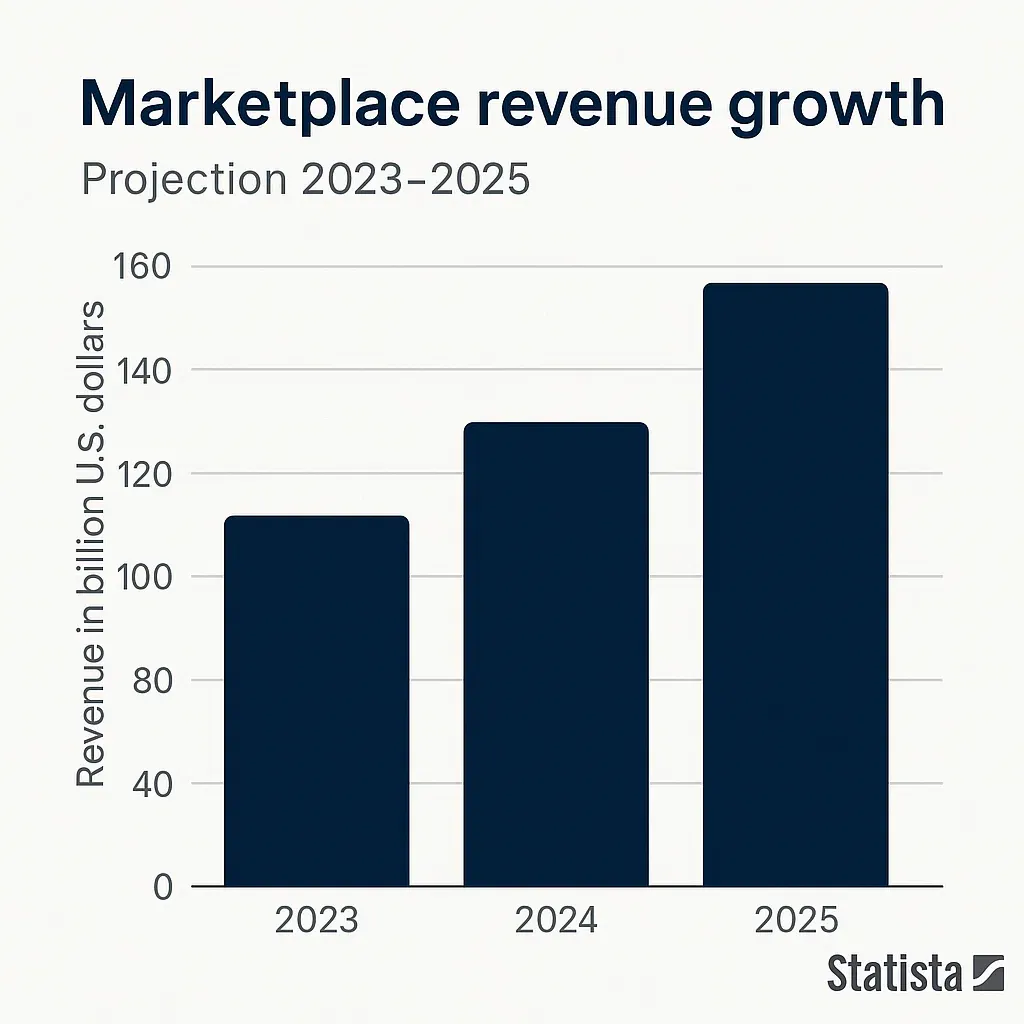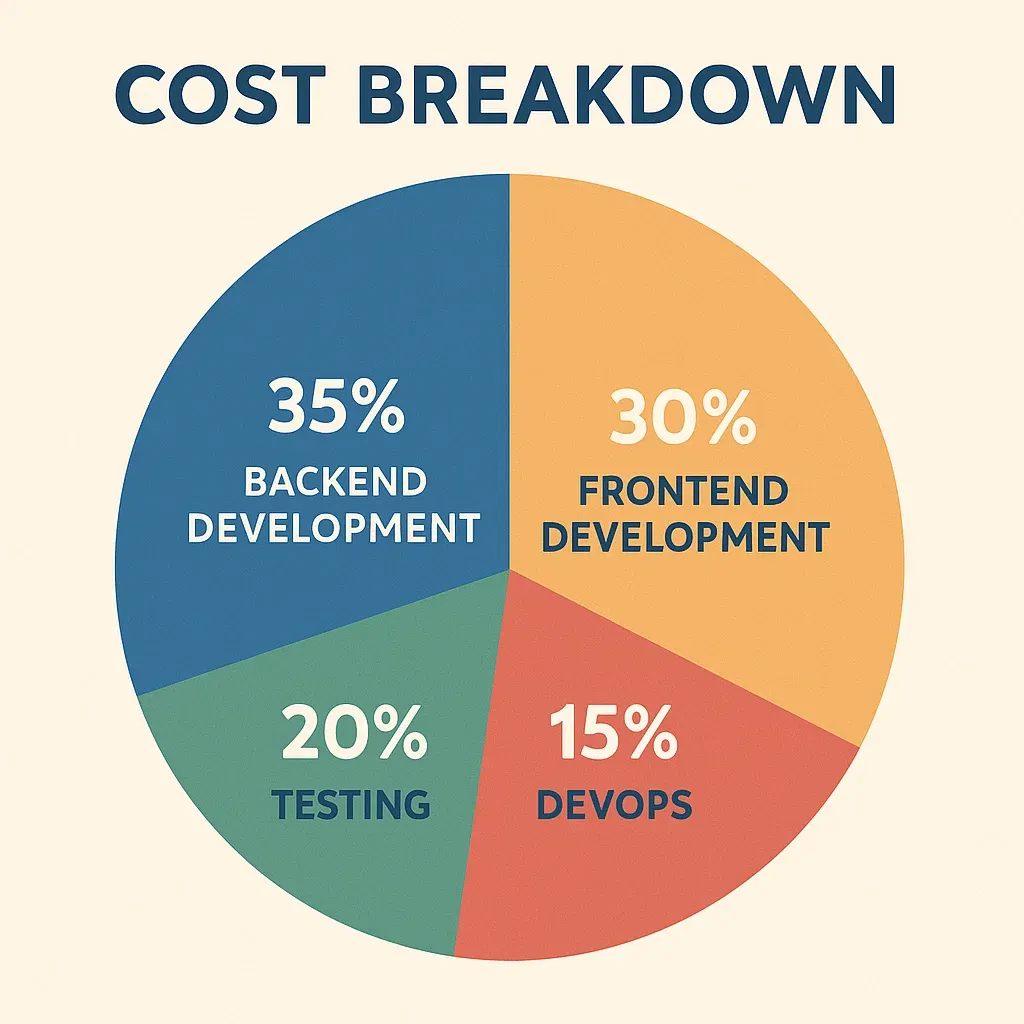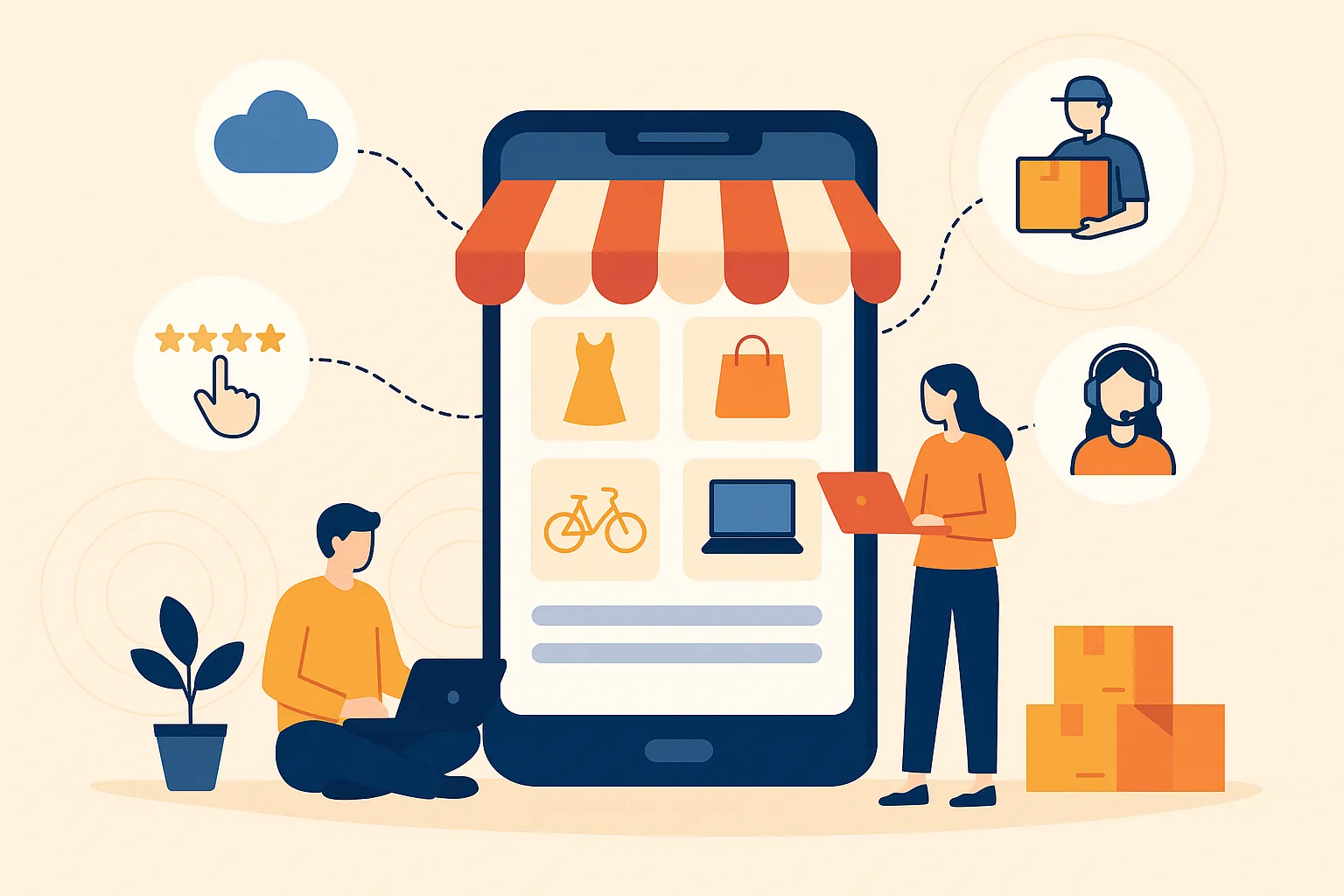In today’s hyper-connected world, digital marketplaces have become the beating heart of modern commerce. From renting vacation homes to booking personal trainers, Profitable Smart Scalable marketplace apps are streamlining every imaginable service — and the trend isn’t slowing down in 2025. For startup founders, digital agencies, and entrepreneurs alike, this signals one thing: opportunity.
Marketplace apps — also referred to as multi-vendor platforms — represent one of the most scalable, profitable, and future-proof business models of the decade. With growing investor attention, rising consumer dependency, and AI-driven personalization, launching a smart, scalable marketplace app is no longer just a good idea. It’s a strategic leap into a high-growth segment.

Why Marketplace Apps Are a Hot Opportunity in 2025
According to Statista, the global platform economy is projected to surpass $9 trillion by 2025, with B2C marketplaces contributing a lion’s share. Online platforms like Etsy, Upwork, Airbnb, and Fiverr have paved the way, demonstrating how scalable digital marketplaces can quickly reach millions with minimal inventory and infrastructure.
Key trends fueling this boom:
- Funding Flow: CB Insights notes that over $50B was invested in marketplace startups globally in 2024, with vertical-specific platforms seeing higher valuations.
- Behavioral Shift: Post-pandemic consumer habits now favor digital convenience, peer-reviewed services, and mobile-first platforms.
- Tech Enablers: With low-code tools, API-based architecture, and plug-and-play fintech integrations, building a marketplace is faster and more cost-efficient than ever.
Despite the influx of platforms, niche-specific marketplaces remain underserved — creating golden gaps for savvy founders to fill.
Top Profitable Marketplace App Ideas to Launch in 2025
1. Freelance Microtask Marketplace
Connect individuals with quick gigs — from data tagging to logo creation — much like TaskRabbit meets Fiverr.
- Monetization: Commission per gig, premium freelancer subscriptions, ad placements.
- Why It Works: Remote-first work culture is booming, and companies prefer micro-outsourcing.
2. Peer-to-Peer Equipment Rental
Allow users to rent out tools, cameras, drones, or sports gear locally.
- Monetization: Rental commissions, insurance fees, listing upgrades.
- Why It Works: Cost-conscious consumers prefer access over ownership. Sustainability is a bonus.
3. Health & Wellness Service Marketplace
Book yoga teachers, dieticians, physiotherapists — all in one app.
- Monetization: Subscription tiers for professionals, booking fees, in-app purchases.
- Why It Works: Health-conscious behavior is rising. Personalization + convenience is key.
4. Pet Services Marketplace
A one-stop platform for pet grooming, walking, training, and vet bookings.
- Monetization: Commission, membership plans, feature boosts.
- Why It Works: The pet care economy is set to hit $350B globally by 2027.
5. Event Vendor Marketplace
Connect event planners with decorators, caterers, DJs, and venues.
- Monetization: Lead fees, booking cut, freemium vendor listings.
- Why It Works: Event planning is getting digitized, and local suppliers need visibility.
6. Used Goods Resale Marketplace
A niche resale app for fashion, books, or electronics with a focus on trust and quality.
- Monetization: Sale commission, authentication fees, promoted listings.
- Why It Works: Circular economy values and Gen Z’s thrift culture drive demand.
7. Online Learning Tutors Marketplace
Help learners find local or global tutors by subject, level, or exam type.
- Monetization: Subscription, per-class fee, certification upsells.
- Why It Works: Education is going hybrid, and personalized tutoring is in high demand.
What Makes an App Profitable in the Marketplace Niche?
The most profitable marketplace apps share a few non-negotiable traits:
- Recurring revenue via subscriptions or repeat transactions
- High retention rates driven by sticky features and value delivery
- Low operational overhead due to minimal inventory or fulfillment needs
- Strong user acquisition loops, often powered by reviews, referrals, or SEO
But the secret sauce? Rapid go-to-market execution. That’s where clone app development becomes a game-changer. White-label clone solutions from Miracuves drastically reduce development costs and timelines — giving founders a powerful head start with tested UX, scalable architecture, and built-in monetization features.
Cost to Build a Marketplace App in 2025
Building a custom marketplace app from scratch can range from $25,000 to $250,000+, depending on:
- Platform type (iOS, Android, Web)
- Features (real-time chat, booking system, payment gateway, reviews)
- UI/UX complexity
- Backend scalability & integrations
- Maintenance and security layers
Alternative? Using a ready-made clone solution from Miracuves — like a TaskRabbit clone, UrbanClap clone, or Upwork clone — can cut development costs by up to 70% and bring your MVP to market in under 30 days.
Launch Your Smart Scalable Marketplace in Just 3–6 Days — Go Live with Miracuves from $2,500 to $3,000 and scale your business seamlessly!

Tips for Founders to Launch a Successful Marketplace App
Launching a winning app isn’t just about coding — it’s a combination of strategy, tech, and timing.
- Start with an MVP: Build a lean version with only essential features. Validate first, scale later.
- Focus on UI/UX: A confusing app layout can tank user adoption. Prioritize usability.
- Pre-launch validation: Run beta tests, build a waitlist, and get real user feedback early.
- Scalable backend: Choose a tech stack that grows with you. Avoid tech debt from day one.
- Invest in launch marketing: No one downloads an invisible app. Build buzz before you go live.
Conclusion
2025 is the year of hypergrowth for niche digital platforms — and smart, scalable marketplace apps are right at the center of it. Whether you’re targeting the freelance economy, local services, or peer-to-peer rentals, the potential is vast and largely untapped in many segments.
Don’t let complexity or cost hold you back. With clone app development from Miracuves, you can launch faster, spend less, and scale smarter — all while owning the platform entirely.
At Miracuves, we help innovators launch high-performance app clones that are fast, scalable, and monetization-ready. Ready to turn your idea into reality? Let’s build together.
FAQs
Q:1 How much does it cost to build a marketplace app in 2025?
The cost to build a marketplace app with Miracuves in 2025 typically ranges from $2,500 to $3,000, including a full 3-6 day Go-Live setup
Q:2 What features should a successful marketplace app include?
User profiles, search filters, bookings, reviews, secure payments, and real-time chat.
Q:3 Is it better to build from scratch or use a clone solution?
Clone apps offer faster launch, proven features, and significant cost savings.
Q:4 Can I customize a Miracuves clone app for my niche?
Yes, all Miracuves solutions are white-label and fully customizable.
Q:5 Do clone apps support scaling to millions of users?
Absolutely — they’re built with scalable architecture suited for growth.
Q:6 How soon can I launch a marketplace app with a clone solution?
Within 2–4 weeks, depending on your branding and customization needs.
Related Articles:








